#anti over the garden wall
Explore tagged Tumblr posts
Text
Tim Burton, Jhonen Vasquez and Amy Winfrey writes gothic characters better than Vivziepoop.
#tim burton#jhonen vasquez#amy winfrey#anti vivziepop#anti hazbin hotel#anti helluva boss#anti zoophobia#hazbin hotel critical#hazbin hotel criticism#helluva boss critical#helluva boss criticism#helluva critique#helluva shit#hazbin brothel#vivziepoop#anti lucifer valentine#lucifer valentine critical#anti over the garden wall#over the garden wall critical#over the garden wall#hooray for hell#unpopular opinion#opinion#sorry not sorry#gothic#goth#gothic representation#goth representation#goth characters#goth charlotte
42 notes
·
View notes
Text
More shows that have a better color palette than Hazbin Hotel
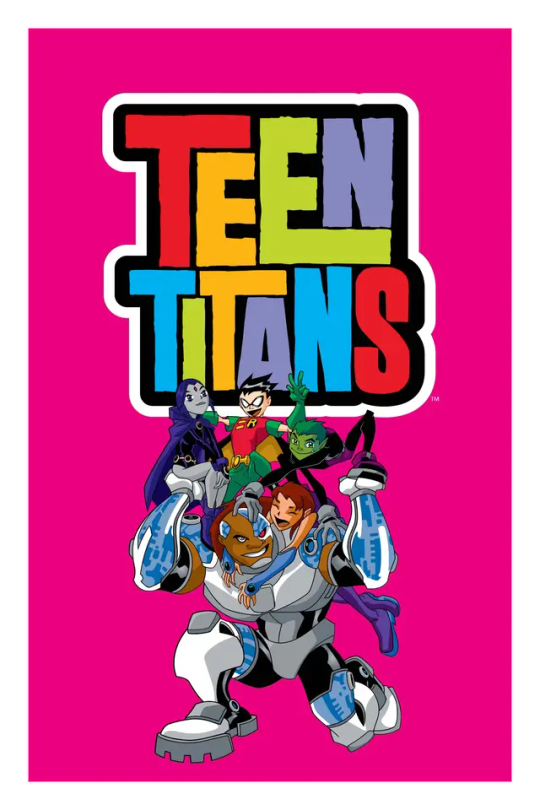
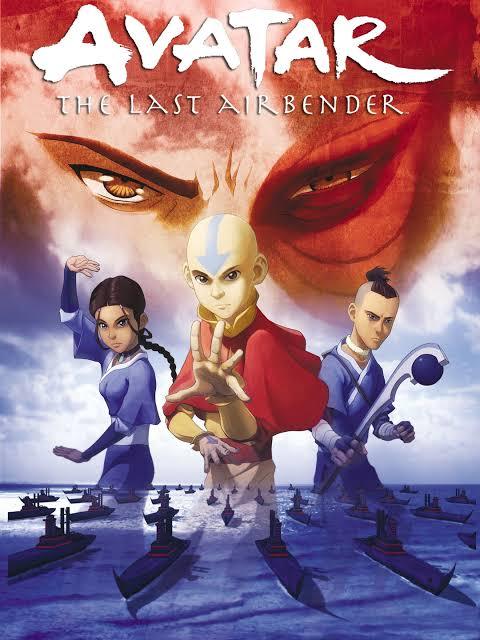
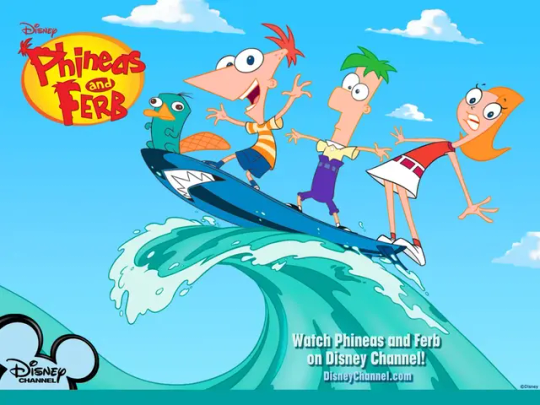
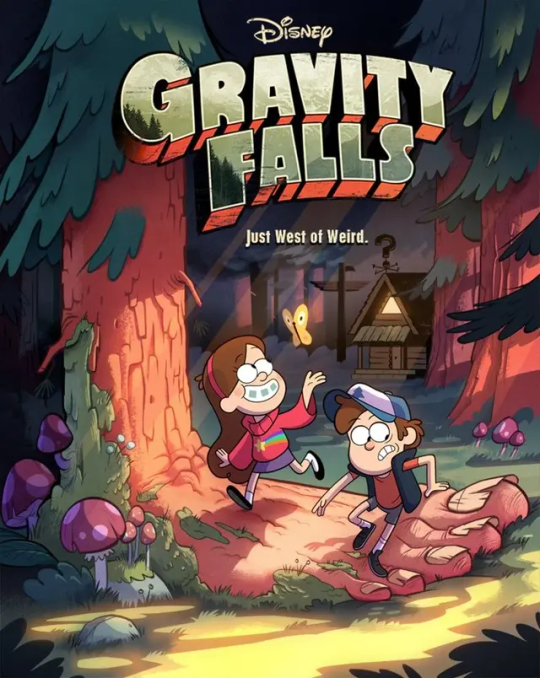
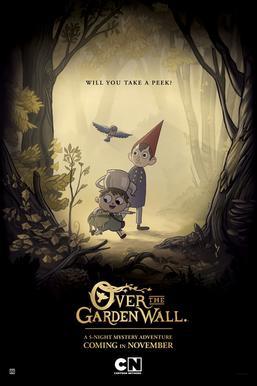

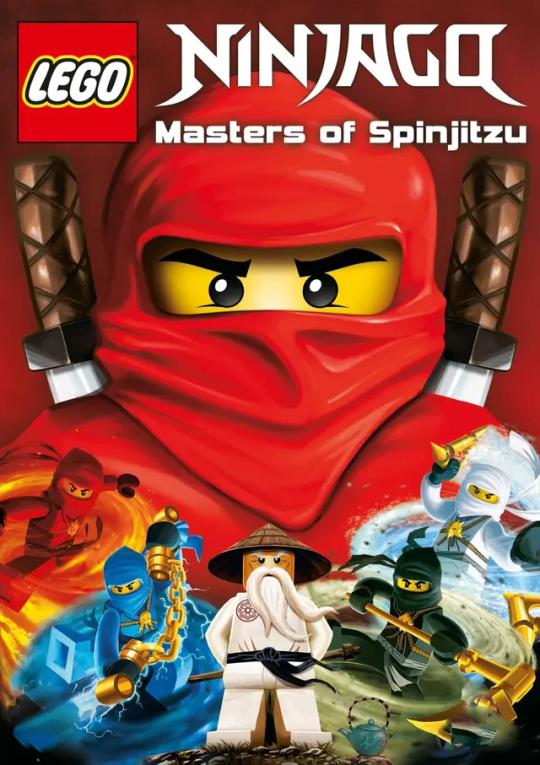

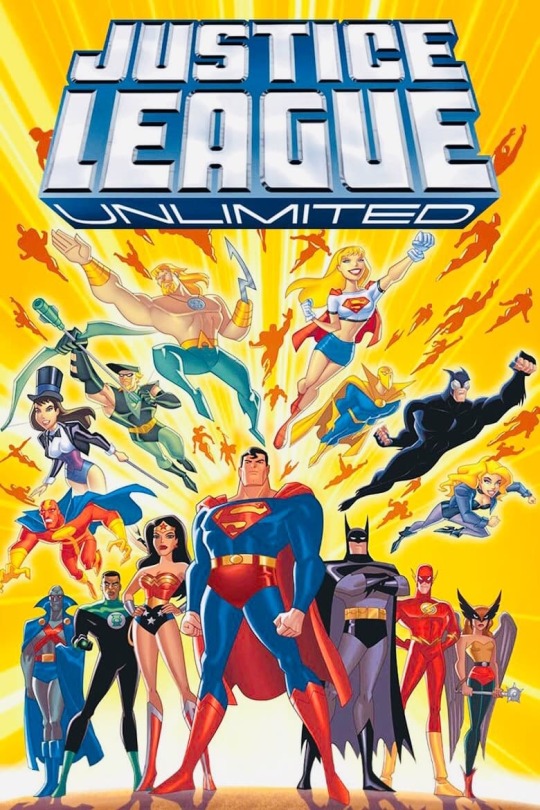


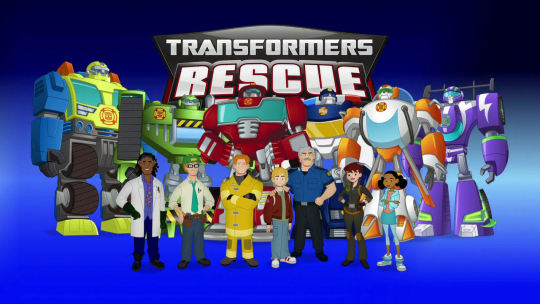
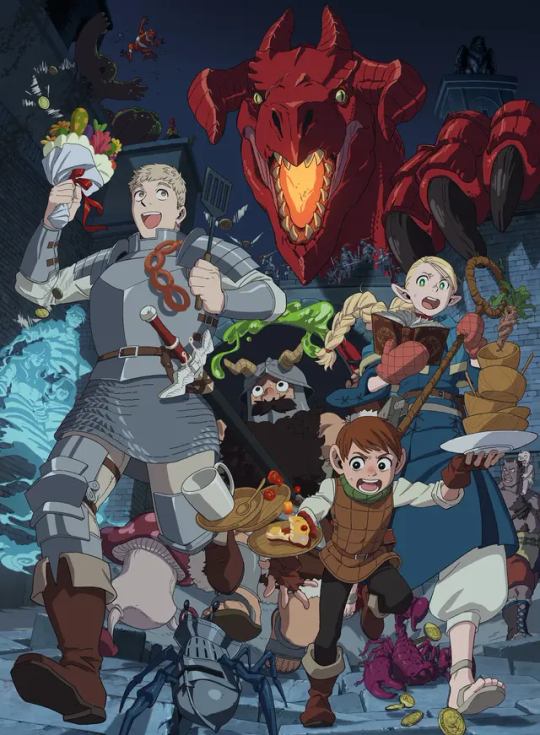
#hazbin hotel critical#hazbin hotel criticism#hazbin hotel critique#anti hazbin hotel#teen titans 2003#avatar the last airbender#phineas and ferb#gravity falls#over the garden wall#kira kira precure a la mode#lego ninjago#ninjago#justice league 2001#justice league unlimited#batman the animated series#batman the brave and the bold#transformers rescue bots#dungeon meshi#delicious in dungeon
174 notes
·
View notes
Text
Found this masterpiece 10 years after its release🔺🫖🐦🐸🪨

#over the garden wall#otgw wirt#otgw greg#wirt and greg#beatrice#rock fact#anti ai#fanart#artists on tumblr
47 notes
·
View notes
Text


ykw FUCK YOU *transes their genders*
#bad end friends#bef#gravity falls#bill cipher#bipper#anti mabel#otgw#over the garden wall#beast wirt#ice finn#adventure time#darcy wu#amphibia#mewberty star#wlw#lesbian#mlm#gay
48 notes
·
View notes
Text
Boycott!

Yes, it still amuses me that there are people who accuse Alex Hirsch of being anti-Semitic, it's just so absurd that even though I saw people writing it a long time ago, it will still amuse me


(I won't comment on racism, it's just not the point)



Just a comedy…
Now that I have your attention:
-------------------------------------------
Don't skip the collections at the top!
#free palestine#palestine#israel is a terrorist state#cartoon#palestina#gaza#gravity falls#free gaza#cartoonist#israel#over the garden wall#otgw#save the children#save family#alex hirsch#autumn#spooky season#fall#I know that everything is anti-Semitic these days#but even a man who is Jewish is suddenly anti-Semitic because he creates Illuminati productions?#at least she's not like Tara Strong who wrote the worst shit about Palestinians
18 notes
·
View notes
Text

ROUND 2 OF RANDOMIZED TUMBLRSEXYPEOPLE POLL 2: ELECTRIC BOOGALOO CHRONICLES
9 notes
·
View notes
Text
it is hard to explain but there is something so unwell about the cultural fear of ugliness. the strange quiet irradiation of any imperfect sight. the pores and the stomachs and the legs displaced into a digital trashbin. somehow this effect spilling over - the removal of a grinning strangers in the back of a picture. of placing more-photogenic clouds into a frame. of cleaning up and arranging breakfast plates so the final image is of a table overflowing with surplus - while nobody eats, and instead mimes food moving towards their mouth like tantalus.
ever-thinner ever-more-muscled ever-prettier. your landlord's sticky white paint sprayed over every surface. girlchildren with get-ready-with-me accounts and skincare routines. beige walls and beige floors and beige toys in toddler hands. AI-generated "imagined prettier" birds and bugs and bees.
pretty! fuckable! impossible! straighten teeth. use facetune and lightroom and four other products. remove the cars along the street from the video remove the spraypaint from the garden wall remove the native plants from their home, welcome grass. welcome pretty. let the lot that walmart-still-owns lay fallow and rotting. don't touch that, it's ugly! close your eyes.
erect anti-homelessness spikes. erect anti-bird spikes. now it looks defensive, which is better than protective. put the ramp at the back of the building, you don't want to ruin the aesthetic of anything.
you are a single person in this world, and in this photo! don't let the lives of other people ruin what would otherwise be a shared moment! erase each person from in front of the tourist trap. erase your comfortable shoes and AI generate platforms. you weren't smiling perfectly, smile again. no matter if you had been genuinely enjoying a moment. you are not in a meadow with friends, you're in a catalogue of your own life! smile again! you know what, forget it.
we will just edit the right face in.
#spilled ink#writeblr#warm up#i have more to say about how fundamentally fucked up it is that we associate ugliness with evil#but this is also just like. to get the first part off my chest#and as someone w/an invisible disability#....... yeahhhhhhhhhhhhhhhhhhhhhhhhhhhhhhhh#(i got too mad and my brain shorted out)
8K notes
·
View notes
Text
One thing that I keep seeing whenever I make posts that are critical of macs is folks in the notes going "they make great computers for the money if you just buy used/refurbs - everyone knows not to buy new" and A) no they don't know that, most people go looking for a new computer unless they have already exhausted the new options in their budget and B) no they don't make great computers for the money, and being used doesn't do anything to make them easier to work on or repair or upgrade.
Here's a breakdown of the anti-consumer, anti-repair features recently introduced in macbooks. If you don't want to watch the video, here's how it's summed up:
In the end the Macbook Pro is a laptop with a soldered-on SSD and RAM, a battery secured with glue, not screws, a keyboard held in with rivets, a display and lid angle sensor no third party can replace without apple. But it has modular ports so I guess that’s something. But I don’t think it’s worthy of IFixIt’s four out of ten reparability score because if it breaks you have to face apple’s repair cost; with no repair competition they can charge whatever they like. You either front the cost, or toss the laptop, leaving me wondering “who really owns this computer?”
Apple doesn't make great computers for the money because they are doing everything possible to make sure that you don't actually own your computer, you just lease the hardware from apple and they determine how long it is allowed to function.
The lid angle sensor discussed in this video replaces a much simpler sensor that has been used in laptops for twenty years AND calibrating the sensor after a repair requires access to proprietary apple software that isn't accessible to either users or third party repair shops. There's no reason for this software not to be included as a diagnostic tool on your computer except that Apple doesn't want users working on apple computers. If your screen breaks, or if the fragile cable that is part of the sensor wears down, your only option to fix this computer is to pay apple.
How long does apple plan to support this hardware? What if you pay $3k for a computer today and it breaks in 7 years - will they still calibrate the replacement screen for you or will they tell you it's time for new hardware EVEN THOUGH YOU COULD HAVE ATTAINED FUNCTIONAL HARDWARE THAT WILL WORK IF APPLE'S SOFTWARE TELLS IT TO?
Look at this article talking about "how long" apple supports various types of hardware. It coos over the fact that a 2013 MacBook Air could be getting updates to this day. That's the longest example in this article, and that's *hardware* support, not the life cycle of the operating system. That is dogshit. That is straight-up dogshit.
Apple computers are DRM locked in a way that windows machines only wish they could pull off, and the apple-only chips are a part of that. They want an entirely walled garden so they can entirely control your interactions with the computer that they own and you're just renting.
Even if they made the best hardware in the world that would last a thousand years and gave you flowers on your birthday it wouldn't matter because modern apple computers don't ever actually belong to apple customers, at the end of the day they belong to apple, and that's on purpose.
This is hardware as a service. This is John Deere. This is subscription access to the things you buy, and if it isn't exactly that right at this moment, that is where things have been heading ever since they realized it was possible to exert a control that granular over their users.
With all sympathy to people who are forced to use them, Fuck Apple I Hope That They Fall Into The Ocean And Are Hidden Away From The Honest Light Of The Sun For Their Crimes.
2K notes
·
View notes
Text
The Night's Watch election for Lord Commander is such a riot! Funny and full of twists and turns.
First, five of the brothers keep voting for Three Finger Hobb in all the rounds because they hate his cooking so much they rather have him out of the kitchen and as Lord Commander!
Tonight it was Sam’s turn to give his results first. “Two hundred and three for Ser Denys Mallister,” he said. “One hundred and sixty-nine for Cotter Pyke. One hundred and thirty-seven for Lord Janos Slynt, seventy-two for Othell Yarwyck, five for Three-Finger Hobb, and two for Dolorous Edd.” Sam was more relieved than disappointed. Even with Bowen Marsh’s support, Lord Janos was still only third. “Who are these five who keep voting for Three- Finger Hobb?” he wondered. “Brothers who want him out of the kitchens?” said Clydas.
Even funnier Three Finger Hobb is taking the election seriously and campaigning by cooking them food!
Three-Finger Hobb had promised the brothers roast haunch of mammoth that night, maybe in hopes of cadging a few more votes. If that was his notion, he should have found a younger mammoth, Sam thought, as he pulled a string of gristle out from between his teeth. Sighing, he pushed the food away
Three Finger Hobb also got more votes than Dolorous Edd! Which, I guess, is not surprising, considering Edd gives one of the most depressing campaign speeches ever!
Dolorous Edd got up, stone-faced and glum as ever. “I just want to say to whoever is voting for me that I would certainly make an awful Lord Commander. But so would all these others.”
So who is voting for Edd? Pyp just for fun!
Pyp and his stupid japes
Stannis really, really hates Janos Slynt and does some anti-Slynt campaigning before the team leaders...
“Your Grace, let me say how pleased we are to be summoned here. When I saw your banners from the Wall, I knew the realm was saved. ‘There comes a man who ne’er forgets his duty,’ I said to good Ser Alliser. ‘A strong man, and a true king.’ May I congratulate you on your victory over the savages? The singers will make much of it, I know—” “The singers may do as they like,” Stannis snapped. “Spare me your fawning, Janos, it will not serve you.”
Maester Aemon is dropping all the hints to Sam and going 'I can't be seen choosing any one candidate but someone else can...' Wink Wink!
“The choosing . . . Maester, isn’t there something you could do? What the king said of Lord Janos . . .” “I recall,” Maester Aemon said, “but Sam, I am a maester, chained and sworn. My duty is to counsel the Lord Commander, whoever he might be. It would not be proper for me to be seen to favor one contender over another.” “I’m not a maester,” said Sam. “Could I do something?” Aemon turned his blind white eyes toward Sam’s face, and smiled softy. “Why, I don’t know, Samwell. Could you?”
Cotter Pyke's description of the candidates is hilarious:
“Who? Bowen Marsh? The man counts spoons. Othell’s a follower, does what he’s told and does it well, but no more’n that. Slynt . . . well, his men like him, I’ll grant you, and it would almost be worth it to stick him down the royal craw and see if Stannis gagged, but no. There’s too much of King’s Landing in that one. A toad grows wings and thinks he’s a bloody dragon.” Pyke laughed. “Who does that leave, Hobb? We could pick him, I suppose, only then who’s going toboil your mutton, Slayer? You look like a man who likes his bloody mutton.”
Denys Mallister does a Joe Biden and is like I am old so it's my turn and I deserve this job and also engages in some old-timey classism.
Also everyone hates Janos Slynt!
And this so-called Lord of Harrenhal is a butcher’s whelp upjumped by the Lannisters. Small wonder he is venal and corrupt.”
Sam then does some garden variety electoral fraud and using Ned's philosophy lies to both Denys and Cotter Pyke that Stannis means to chose the other man if no decision was made by that night and setting a deadline. Poor ol' Ned must be turning in his grave knowing his 'some lies are honorable' teachings are being used to commit electoral fraud!
Another candidate then puts in Jon's name as a candidate!!
Maester Aemon answered, from the far end of the hall. “Your name has been put forth as Lord Commander, Jon.” That was so absurd Jon had to smile. “By who?” he said, looking for his friends. This had to be one of Pyp’s japes, surely. But Pyp shrugged at him, and Grenn shook his head. It was Dolorous Edd Tollett who stood. “By me. Aye, it’s a terrible cruel thing to do to a friend, but better you than me.”
Stannis' anti-Slynt campaigning works and Othell Yarwyck who was getting heavily courted by Slynt and Thorne then engages in a sudden twist, gives up his candidature and is like 'I support Jon, here are all his credentials' and does some light campaigning for Jon.
Othell Yarwyck stood up slowly, frowning. The big builder rubbed his long lantern jaw and said, “Well, I’m pulling my name out. If you wanted me, you had ten chances to choose me, and you didn’t. Not enough of you, anyway. I was going to say that those who were casting a token for me ought to choose Lord Janos . . .” Ser Alliser nodded. “Lord Slynt is the best possible—” “I wasn’t done, Alliser,” Yarwyck complained. “Lord Slynt commanded the City Watch in King’s Landing, we all know, and he was Lord of Harrenhal . . .” “He’s never seen Harrenhal,” Cotter Pyke shouted out. “Well, that’s so,” said Yarwyck. “Anyway, now that I’m standing here, I don’t recall why I thought Slynt would be such a good choice. That would be sort of kicking King Stannis in the mouth, and I don’t see how that serves us. Might be Snow would be better. He’s been longer on the Wall, he’s Ben Stark’s nephew, and he served the Old Bear as squire.” Yarwyck shrugged. “Pick who you want, just so it’s not me.” He sat down.
And then, AND THEN, frigging BLOODRAVEN turns up to do some last minute campaigning for Jon Snow that pretty much all but decides the election!
With a raucous scream and a clap of wings, a huge raven burst out of the kettle. It flapped upward, seeking the rafters perhaps, or a window to make its escape, but there were no rafters in the vault, nor windows either. The raven was trapped. Cawing loudly, it circled the hall, once, twice, three times. And Jon heard Samwell Tarly shout, “I know that bird! That’s Lord Mormont’s raven!” The raven landed on the table nearest Jon. “Snow,” it cawed. It was an old bird, dirty and bedraggled. “Snow,” it said again, “Snow, snow, snow.” It walked to the end of the table, spread its wings again, and flew to Jon’s shoulder.
The way Jon's Targaryen ancestors Bryndon Rivers and Maester Aemon came together to get their descendant elected is 🔥. Not to mention Yarwyck going 'Jon is Benjen Stark nephew!' which means his Stark heritage counted as well. Some Ice and Fire stuff in here.
And finally the election is over and Jon wins. Those poor five brothers will have to continue to eat Three Finger Hobb's food!
The humor interspersed throughout chapters like this are why this series just does not get boring no matter how many rereads I do. Even if GRRM never finishes at least we will have some good books out of what we still have.
#Jon Snow#Samwell Tarly#asoiaf#Stannis Baratheon#Three Finger Hobb#Dolorous Edd#Janos Slynt#Maester Aemon#Night's Watch#Bloodraven
91 notes
·
View notes
Text
shshdhhdjjsjs shalom………….. i miss her 😔😔😔 having so many thoughts about her but mmmm post-canon shalom………..
the past is miles behind you both, and buried deep beneath the soil. its corpse now feeds the fertile flowerbeds of your backyard gardens, encouraging blooms of roses and lillies and daisies and daffodils. shalom tends to her flowers every morning, and drags you out too—lest her notorious anti-green thumb cause her beloved flowers to wilt.
she stays at home while you go out to run a few errands and odd jobs here and there; you may be on a luxurious government pension, but the lack of something to do has never sat right with you. so you leave in the late mornings with a kiss pressed to her crown, and return just before golden hour with another against her lips. but sometimes— sometimes, the house seems a little too quiet when you’re gone. she knows you aren’t truly gone, and that you’ll always come back to her, but, well.
she misses you. that’s all there is to it.
and it’s what moves her to call you on a particularly gloomy afternoon. you were out, as usual, this time helping out a local store with some deliveries. she had smiled, amused, when you told her about the job— you never could turn down a request for help. it’s part of what she adores so deeply about you, enough to defy the will of heaven itself for your sake.
she counts the number of times the phone rings after she dials you—once, twice, almost thrice before you pick up. there’s a slight breathless quality to your voice when you speak.
“hey,” you say, and she can hear the smile in your voice. it makes one tug at her lips too.
“hello to you too,” she hums in return, leaning against the window as she sits in the little alcove, watching the grey sky and the lazy, rolling clouds. “i’m not disturbing, am i?”
“never,” is your immediate, sure answer. her heart jumps a little in her chest at the sound, and she brushes a hand over the firm plane of her breastbone, feeling the pitter-patter of the organ beneath.
“such a smooth talker.”
“i learned from the best.”
her neck and ears warm, and she breathes a laugh against the cool surface of her phone. “is that so?”
“sure is,” you confirm, and she hears vaguely the sound of muffled conversation and the rustle of a bag. you cup your hand over the reciever, speaking to whoever it was beside you, before talking to her again. “was there something you needed?”
was there? shalom ponders the question briefly. the answer comes quickly to her, and she needed not any of paradeisos’s great computational techniques to find it. the answer was always there, locked in her once-unfeeling heart.
i need you, she thinks, always. “no,” is what she answers.
you’re silent for a moment on the other line, then hum quietly. “okay. i’ll see you soon, then.”
“yes,” she breathes, eyes fluttering shut. funny, how she could once rip and tear even the strongest of people into nothingness with just her tongue, but when it comes to saying those words to you she finds it tied into knots, heavy like lead in her mouth. you end the call, and shalom lets her head thud against the wall as she looks up at that overcast sky.
but then, not even a few moments later, she hears the rattling of keys in the door, and a layer of tension settles over her form like morning dew. she can’t help the slight widening of her eyes or the surprised part of her lips when she sees you walk into the room, a knowing look in your eye and a gentle smile playing on your lips. there’s a paper bag in your hands, and it smells like freshly baked pastries.
“you came,” she manages, her voice uncharacteristically small as she cranes her head upwards while you lean down, letting your forehead rest against hers.
“you called,” you answer softly, then let out a tiny chuckle against her lips as your free hand runs through her wine-red hair to settle at the nape of her neck. “or not exactly, but i know you.”
she kisses you instead of saying anything else, because no word that she knows could ever do justice the way she feels about you. she remembers, distantly, reading a poem on love—on a love so much greater than words, that the poet has chosen to fall silent. she did not understand then, but she understands now. your words echo in her mind and the four chambers of her racing heart, carried by her blood to every fiber of her being.
i know you.
yes, she thinks as she parts from you, gazing into your eyes, fathomlessly deep with love. yes, you know her, and for once in her life that prospect doesn’t fill her with something adjacent to dread. for what is there to dread about being known, other than the fact it shows she is loved?
#sev.scribbles#sevlomi#ptn#ptn shalom#shalom x reader#ptn shalom x reader#yeah this is kinda sefship adjacent#another selfship tag yipee#my little meow meow ouhhh i miss her so bad#it’s 0333 and i cranked this out by sheer force of yearning
212 notes
·
View notes
Text
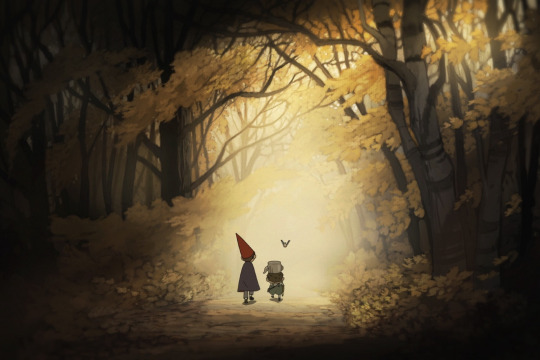
So when discussing the ending of ‘Over the Garden Wall’ and the nature of the Unknown in general, I think it is important to remember that it’s left deliberately up for interpretation. You know, it’s not a Quiz with one concrete answer we must uncover, but it’s more about our interpretations and personal feelings. Each and every one of us experiences that journey with Wirt and Greg into the Unknown in a slightly different way.
So what I want to do here is not present a Correct Interpretation that will dispute all the others and prove them all wrong and prove myself right, I just want to share my own outlook on the nature of the Unknown. In the hopes that others will like it and it’ll inspire more cool readings and interpretations
So on some level I do agree with the popular theory that the Unknown is some sort of Afterlife - but I don’t see it as a regular Afterlife for human souls, I think it is an afterlife for Stories. This place is where fictional characters and stories end up once they’ve been totally forgotten by the living, ‘lost in the clouded annals of history’. and become.... unknown It is quite literally a place where ‘long forgotten stories are revealed to those who travel through the wood’.

That’s why the Unknown is a mishmash of different time periods and primarily visually and narratively influenced by stuff like fairy tales, ghost stories, children’s books and old cartoons - these stories have a high-tendency to be forgotten and thus get lost in the Unknown (whatever it’s because they rely on oral traditions or because they suffered from very poor preservation historically).
And that is what the theme song, ‘Into the Unknown’ is talking about…
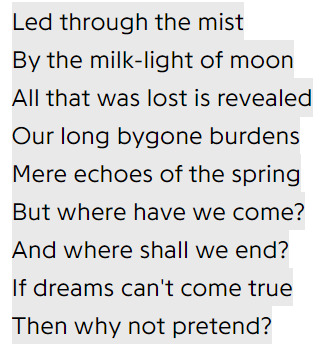
Where can we pretend that dreams do come true? In Stories.

And what are ‘the loveliest lies of all’? Now that would be Fiction.
The entire concept of stories is a huge theme of this song, I think.

Beatrice and her family, Adelaide of the Pasture, Auntie Whispers and Lorna were all originally fairy tales. Maybe the same fairy tale, or maybe they were originally separated before being ‘melded’ together. (If, for example, the last child to Remember them before they were forgotten just assumed the Bad Witch in both the Auntie Whispers and Beatrice stories was Adelaide)

Pottsfield was an old urban legend about a haunted ghost town, Wirt and Greg basically played through its ‘plot’ directly.

Miss Langtree, the schoolhouse and the other associated characters come from a long-forgotten and out-of-print children’s book. That’s why those characters tend to talk in comically-stilted expository dialogue.


The Tavern was the setting for a series of 20’s animated cartoons. (Although obviously set long before that era). The Tavern Keeper was created as a Betty Boop clone and was the main character. The Tavern setting was probably a mere framing device for all sort of musical animations. The reason why none of them can comprehend the idea of not having some sort of Title or Label is because that’s how they were written - all given job-related titles but not named.
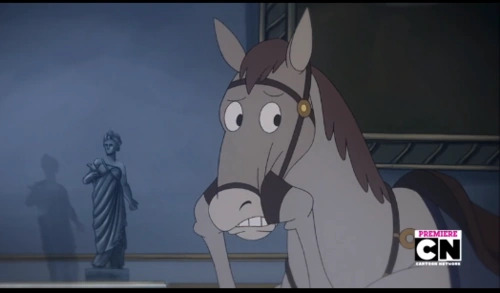
Fred the Talking Horse was a main character from a forgotten tradition of humorous oral stories where he was sometimes a trickstery anti-hero and sometimes a straight-up comedic villain protagonist.

Quincy Endicott and Margueritte Grey were characters from a satiric limerick about the greedy rich and their wacky habits. (Quincy was at least inspired by a real-life person since his name appears on a tombstone in the real world)

Possibly the same limerick where the punchline was the status-quo at the beginning of their OTGW ep, that both rivals’ mansions have become connected and they assume the other is a ghost haunting their house. Or maybe they were each from different regional variations of the same limerick about a greedy rich weirdo being lost in their own house and going mad.

Frogland and their little boat might be from a children’s book as well, but I also think that maybe… from the vignettes shown at the opening of the series…

That one might take place outside the Unknown, and shows the real inception of Frogland. Two brothers making up stories with their toy boat by the river. Since they never shared these stories with anyone else, when these two brothers died or maybe just grew up and forgot their boyhood misadventures by the stream - these stories also ended up in the Unknown.

The Fishing Fish we see briefly in ‘Babes in the Woods’ might be a small comedic illustration from a children’s book, or another piece of limerick, or just someone’s random notebook doodle that gained a life of its own first in the creator’s mind and then in the Unknown.

Cloud City, the North Wind and the Queen of the Clouds were also, much like the Tavern, from a very old cartoon.

The Beast was once just a mere Boogie Man to keep young children from wandering off into the woods. Ending up forgotten in the Unknown just ended up giving him a whole world of lost souls to harvest.

Maybe the Woodsman and his daughter were always a part of the story of the Beast. But since it seems that the Woodsman being a lantern-bearer is a fairly recent development - they might have had their own separate story. Some sort of pastoral novel about a family moving near the woods? But their narrative has been ‘hijacked’ by the Beast.

Wirt and Greg ended up lost within the Unknown cause had they actually died in the lake that night - they would have become a Story in their town. I mean we have a moody lonely teenager and his adorable little brother disappearing/dying - on the night of Halloween - after last being seen in a graveyard - with the older brother’s last act on this earth being to hand his crush a cassette of his love poetry. Can you imagine what sort of Urban Legenda you can grow from those seeds?
But as they were not yet dead, and not a Story yet… so they were technically an Unknown story. Between the borders of life and death from a human perspective because they were about to die, and from a Story perspective because they were just about to be born.
And the ending sequence, with the little vignettes showing where all the characters from all the episodes ended up. I think that’s almost like Wirt and Greg back in the world of the living and the real - being able to create happy endings for all of those stories they've met. That’s how the Woodsman’s daughter ended up being alive all along - it was less that the Woodsman's whole tragedy was a wacky misunderstanding all along. But it became so as a gift of thanks by their new storytellers - Wirt and Greg.
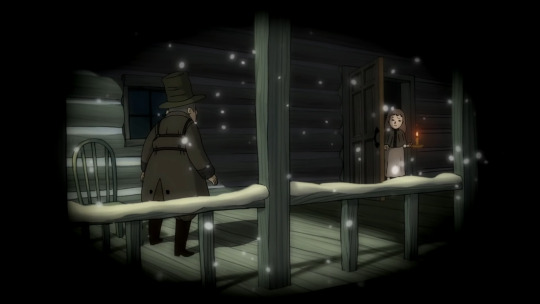
Because if dreams can't come true, than why not pretend?
619 notes
·
View notes
Text
I got a Steam Deck last year, and it’s such a great machine. It’s obviously inspired by Nintendo Switch, but it’s a lot better than a Switch.
The most important part is that it runs PC games. It’s fundamentally a Linux gaming PC in the form of a handheld console. There are a lot more games available than any console and and PC games both on Steam and GOG are a lot cheaper than console ones. You can get old or indie games for as cheap as 1-3 euro during sales. It’s a tremendous advantage for the deck over its console competitors.
And while the obvious intent of the deck is to get more people to buy games from Steam, it isn’t a walled garden at all. The deck launches into Steam when you boot it up, but you can go into desktop mode, and then it functions as a normal PC running a Linux distro. From there you can install Lutris or Heroic Games Launcher, and use it to easily install games you bought from GOG and Itch.io.
You can also do things like use the official dock or an unofficial usb-c hub to hook the deck up to a monitor, mouse and keyboard to use it as a desktop PC. Or you can hook it up to a tv to use it as home console.
The hardware is also a lot more powerful than a switch, the demanding triple-a games it can play is actually impressive. Although this comes with the natural disadvantage that it’s bulkier too. Putting more powerful PC parts demands more space for them. The deck is not something I bring with me outside. But then again I didn’t even do that with the 3DS, which was actually of a practical size to do that. The deck is portable enough that I can comfortably play lying in bed, which is how I always used my handheld consoles. So it’s perfect for me, but maybe not if you want to play it on the bus or something. It can probably be a fun addition to your luggage on longer trips though.
Of course, as mentioned, the Steam Deck uses Linux. This has both advantages and disadvantages. The main advantage is that it allows Valve to customize the operating system to make it fit with the machine it’s running on. The Deck’s SteamOS feels really well-integrated into the hardware, like how a proper console OS should be like. It’s not that dissimilar to how Sony used FreeBSD to make Playstation’s OS. Windows would not allow for this amount of customization and would not integrate as well.
And the open source nature of most Linux development allows Valve and the user to use existing open-source Linux software to their advantage. For example, the desktop mode is largely not a Valve creation, it’s an existing desktop environment for Linux, KDE Plasma. Yet it extends what the user can do with the deck to a great extent, like for installing non-steam games.
The main disadvantage to the Deck using Linux is that most PC games are built for Windows and don’t run natively under Linux. To run games built for Windows, the Deck has to run it through Proton, a compatibility layer which is Valve’s own gaming-focused version of Wine. Wine/Proton is far from perfect, sometimes games require extensive tinkering to work, or only run with serious issues, or don’t run at all, no matter what you do. Sometimes a game not working with Wine due to some random but serious issue that comes naturally from running a Windows executable on a Linux system via a compatibility layer. Sometimes it’s due to things like a multiplayer’s game anti-cheat system requiring access to the Windows kernel, and it will block a Linux pc from running the game because it has no Windows kernel.
This is however not as big a problem as it might otherwise be. Most games work, more or less. Valve has put a lot of work and money into both their own Proton and the Wine project as a whole, and they work a lot better than they did 10 years ago. Many run perfectly out of the box, because they are native, or play nice with Proton. Some require mere minor tinkering, like using a different version of Proton. And I generally don’t play multiplayer games, or if I do they don’t have draconian anti-cheats, so the games that are blocked because of anti-cheat are no big loss to me. The Steam Deck not running Fortnite is a plus in my book.
And we shouldn’t forget the Steam Deck verified system. Basically Valve employees check if the game runs out of the box with no issues on the Deck. They get a verified rating if they work with no issue, including both proton compatibility but also things like the controls working nice and the text being legible on the deck’s small screen. They also get a “playable” rating if the game runs to an acceptable standard but with tinkering required or other minor issues.
This is a good system. If you dislike tinkering, you can just buy and play games on steam with a verified rating, and the deck will work like a normal console for you, but with a lot cheaper games. It’s a good way to get people used to consoles into PC gaming, which is probably the point of the Deck.
And if you want more than deck verified games from Steam on the Deck, you are given the freedom to do it. I’ve gotten officially non-supported steam games to run on the deck by installing and using proton-GE and I’ve installed and played games from GOG.
The Steam Deck is really how a Linux PC for the common people should work. An easy and slick experience for casual users, but freedom and customization given to those that want it.
67 notes
·
View notes
Text


NEVER FALL IN LOVE IN MIAMI !!
love it or hate it, valentines day has arrived in vice city and the locals are going all out. various venues around town have seemingly been hit with cupid's arrow ! this year's hallmark holiday has graced the scene of 12welve, body, coyote casino, and heartbreaker bar. where will you find love ?
12welve: this popular night club is never one to miss out on a theme. the walls are covered in hearts and the signature neon lights have been switched to exclusively pink and red. make sure to stop by and grab a valentine's day special cocktail ! they'll be serving pink gin martinis, red hot and bothered's, love potion no. 9's, strawberry sangrias, and between the sheets'. don't worry, the DJs wouldn't be caught dead playing slow jams !
body: what's a better place to find love than in a strip club ? the beloved body has embraced the power of venus and decked out their establishment in rose petals and the scent of givenchy amarige. step into this garden of eden and you may just find your true love up on stage. remember, you can look, but don't touch !
coyote casino: feeling lucky in love ? head on over to coyote casino and put that to the test ! the slots and game tables have been decorated with fake, fluffy clouds and little cherubs to keep you company as you gamble on a check or two. if that's not your style, the glamorous in - house restaurants are having a valentine's day special for all the dinner date plans out there.
heartbreaker bar: looking for a reprieve from all the x's and o's ? heartbreaker has you covered. why, it's in the name after all ! naturally, this dive is holding a "stupid cupid" night for all the valentines averse miamians out there. featuring their signature hallway of memorabilia, take a pic in their photobooth with your anti - valentine and hang it up for everyone to see.
however, miami's street racing underground has a plan for their real true loves. their cars. at midnight, right after the rest of the world's valentine's day, a meet has been scheduled in bay parking garage. the renowned prowlers may lay claim to the structure, but it remains a perfect community spot for showing off rides away from any lawful eyes. be sure to stay in your lines, as most of the city's enthusiasts will be pulling up to truly show off their admiration !
OUT OF CHARACTER: LOVE IN THE 305
out of character, this event will last from sat. 2/8 — sat. 2/15.
in character, everything will take place on valentine's day. the exception being the car meet in bay parking garage which is held after midnight on 2/15.
all threads should be catered towards the event. you may choose what location your muse is at, but all muses should be at the meet after midnight. for the first portion of this event, threads should run until 2am ic time.
please tag any open starters with fast.valentines to keep everything organized.
if you choose to make an edit of your muse's attire, you may tag it with fast.talk and fast.valentines !
19 notes
·
View notes
Text
thought i'd make a new about me since things have changed!!
ABOUT ME!!:
i'm 18 and i'm the host of a system! i, Graham, am usually the one fronting most of the times but if anyone else ever makes a post they'll def sign off :)) our collective pronouns rn are He/Zomb/Freak, but i change our pronouns alllll the time so pls just ask!! or you can just use he/him ^^
we have AuDHD, so please be patient with us, and also use tone tags if you can!! tone tags are extremely appreciated ^^
i'm an australian shepherd and border collie dogkin!! also heavily thinking one of my theriotypes is a lion or big cat of some sort, but still questioning!!
i'd LOVE to have some therian friends, i don't really have any, so pls feel free to comment or even message me!! i'd love to connect with other therians :3
Some of my fav things like ever:
- fnaf
- THE BAND WATERPARKS
- criminal minds
- over the garden wall
- Donnie Darko
- my cat
- undertale
DNI:
pretty much basic dni, any zoos, any paraphiles (even anti-c), if you're homophobic or transphobic, if you're racist, if you're under 14 (no hate to y'all i just don't feel comfortable seeing as i'm 18), proshippers and any of its adjacents, lolicon and any of its adjacents
20 notes
·
View notes
Text
The Ghoul Squeak by nihil-denial
Rating: Gen Audiences
Tags: Fluff and Crack, Soft Papa Emeritus IV, Nameless Ghouls Act Like Cats
Summary: The Nameless Ghouls are restless when not able to go outdoors to exercise and play. Copia wants to help them, but how can he when an expensive treadmill doesn't work for their needs? Copia will need his brother's help to solve it, though the answer might come from a smaller, cuter source...
WC: 3200ish
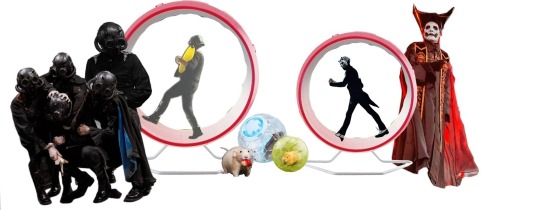
Copia smiled as he sipped his kid-temperature latte, relaxing in his patio chair. The sky was clear above him and the sun was out, making the October day a little less chilly. Today he had claimed a good rest day for the entire ministry to enjoy the outdoors before snow dominated the Massachusetts weather for the next few months.
All four Papa’s packs of Nameless Ghouls were out playing in the abbey’s massive acre plot. Their chatter, wrestling, and general frolicking were a wonderful white noise to the current anti-Pope. They sounded so happy.
Phantom, Aurora, and Sunshine, in their somewhat recently made carbon-based life forms, were currently discovering the wonders of the game of Tag. It was a tie over which ghoul was the better evader, as Phantom had the stride length advantage, Aurora was able to predict where each Ghoul was hiding, and Sunshine’s use of her element made her faster.
Phantom yelps as Aurora jumps to slap at his ankle that was accidentally hanging out of the tree in her line of sight.
“Tag! You’re it!” She jogs off towards the trees that surround Vengeance Lake.
The Quintessence Ghoul hops down and scans the shrubbery that leads into the abbey. All he sees is Copia in his lawn chair with a blanket over his lap, Omega and Secondo playing chess at a garden table nearby, and Terzo doing yoga in one of the sunbeams.
He remembers Sunshine went that way but the thought of getting revenge on Aurora was too tantalizing. He drops to his hands and knees and gallops towards the lake.
“Thanks, Papa,” Sunshine giggles and pops out of her hiding place under his chair. Her exposed Ghoul form meant she radiated extreme heat and she acted almost as a space heater while she used him as cover.
“Of course, my dear. Thank you for warming up these old bones.” He kisses her cheek before she trots off.
“Did they have this much energy with you two?” Copia asks out loud.
Secondo curses as Omega takes his rook. “Not really. Omega had them housetrained by the time we became a pack.”
The large Ghoul’s tail wags at the memory. “It was pretty calm until Mist and Pebble. Pebble is a somehow more reckless version of Phantom. I was never interested in running as a pastime.”
“They do it quite a lot…” Copia mumbles. “I feel awful when they’re stuck indoors. The treadmill has not been welcomed.”
He’s referring to the extremely expensive treadmill placed in the common area of the ghoul den for snowy/stormy days when even the Ghouls connected to the extreme elements didn’t want to go outside. On days like that, the restless energy builds until the demons are basically whining and bouncing-off-the-walls toddlers. The era IV ghouls are especially energetic and it’s getting to the point where they can’t go 24 hours without dropping glamour and going on long runs around the property.
Sister Imperator thought the treadmill was too expensive until a restless Swiss accidentally ran into her while running laps of the cloister. She had ordered it before Swiss had the chance to bring her a new cup of coffee.
Unfortunately, the device has not gone over well. It’s awkwardly placed by the kitchenette and partly blocks some of the den nest. Swiss took a liking to it, using it eagerly but the motor emitted a high frequency that gave poor Phantom and Aurora migraines.
Rain complained that the hard surface of the machine compared with the moving rubber track was too bouncy, causing his hips to ache.
Having it so close to the nest meant that those trying to sleep would be kept away by the sounds of exercise, and that Phantom and Aurora couldn’t be present when someone was using it. It was also too small of a footboard for Mountain to use.
Now it sits unused.
“I’m not sure what to do,” Copia finishes his thought lamely.
A squeak got his attention. Over in a little fenced away sat Zephyr and Rain playing with a few of Copia’s rats running around in plastic hamster balls. The rats were also excited to be outside, though there have been some sharp-eyed hawks circling above, so unfortunately Copia didn’t feel safe letting them free roam.
Zephyr laughs as Rigatoni rolls around them in the grass, the rat pausing to nibble at the dandelions that pop through the ball’s gaps. “They really love to run for such potato-shaped creatures.”
“You could say the same thing about Swiss,” Rain grins. “What if we just put Swiss in a giant hamster ball?”
“That would be a disaster. Giving Swiss an object to hurl himself around in? He’d turn it into a wrecking ball,” Omega moves another piece, effectively checkmating Secondo.
Secondo huffs and hands over a $50 bill. He stands and walks back into the abbey, cursing under his breath.
Omega stretches his arms over his head, a shit-eating grin on his handsome face. “Hey baby, I scored us money to go get gelato.”
Terzo’s mismatched eyes pop open. He scrambles to untangle his legs from his yoga pose and eagerly follow his loyal partner back to the abbey.
“I want some!” Copia calls after them. Terzo simply ignores him.
-
With his two elder brothers being of no help at all, Copia seeks out Primo. The Ghouls retire for dinner, the massive group heading into the dining hall for community spaghetti night. Copia makes sure to saddle up to Primo as they’re lining up for plates.
“Buon pomeriggio, Copia,” The eldest brother greets warmly. His Hawaiian shirt is dirty with soil and wet with hose water.
“Good evening, Primo. How is the garden doing?”
He sighs fondly. “We have a hearty amount of radishes left to harvest tomorrow, but other than that the main garden will be dormant from now until February. I left some beets in your room for your little friends.”
Copia blinks, “That’s so nice, thank you, I know they will enjoy them. Speaking off little friends…” He trails off as they look for a place to sit and talk. Once they find a table by some Brothers talking quietly, he continues, “I need help finding something to help the Ghouls exercise indoors.”
“Is the treadmill unfit?” Primo asks.
“Si, there are little issues that overall have made it unworkable for most of them except Swiss and Alpha. I’m a little lost because it was so expensive and I doubt cheaper ones will be any better.”
Primo eats his pasta with a pensive look on his face. “Perhaps you are thinking of the ghouls too literally. They have animal forms, yes?”
“I mean, they could transform to exercise, but from what Aether was telling me it expends the wrong kind of energy. They need to run off physical energy and not elemental.”
Primo eats another forkful, somehow graceful with the sauced noodles. “If only they were the size of your poccoli topi. When I looked after them during the Re-Impera tour, they were on that exercise wheel non-stop.”
Copia chews thoughtfully, “Do they make human-sized rat exercise wheels?”
“Perhaps. I know there’s one at the Science Museum. It would be a good solution; not a treadmill but still able to run them.”
He pulls out his phone and types into Google some search words. A ton of images of blow-up and plush ‘zorb’ing balls fill his screen. “Not many I can find that seem sturdy.”
“It could be a project for the Ghouls to make? Mountain and Omega love building forts and cabins out in the woods.”
Copia nods, “I’ll talk to them. Thank you for letting me ramble through all this.”
Primo smiles warmly at him. “It’s worth it to see how much you love them, and how they love you. I wish I had thought to have a connection with them all those years ago.”
-
It takes the entirety of October, November, and December for the crafty ghouls to create two oversized hamster wheels. Because of Mountain, Aether, and Alpha’s large frames, the wheels are actually twice the size of ones created for humans.
Copia took in the shining metal and wooden contraptions with pride in his soul. All of the ghouls had some hand in either the design or construction of them. “They are stunning! A true machine made for and by the best of infernals.”
Phantom vibrates in his place beside Copia, finally breaking loose and hopping on the slightly smaller wheel, using his four long limbs to gallop. A loud squeak fills the air as he runs.
Everyone covers their ears.
“Sheesh, we need to fix that one up,” Alpha groans.
Copia nods, “Nothing a little oil can’t help. My only issue is…where will they go? They cannot stay on the terrace, since we made them to be used inside.”
Mountain bites his lip and pulls out an extra-long tape measure. He goes around the two wheels and mumbles measurements to Zephyr.
“Yeah…that’s a full ten inches too tall to comfortably be used in the den. It would rub against the ceiling, not to mention too wide for the crypt staircase.”
“How did we forget to measure it?” Omega facepalms.
“I was so excited about the wood for the track…” Pebble admits. “I might’ve erased the measuring task off the whiteboard so we could go chop down the lumber faster.”
Copia sighs, “Pebble…That was very irresponsible. Is there anywhere else they would fit?”
Zephyr consults the architectural plan of the abbey. “The only other place I can think of right now is the main sanctuary, right behind the entrance doors. The balcony of the organ is more than tall enough to accommodate both sizes of the wheels. And, the spiral staircase wouldn’t be in the way. It could work.”
“Let’s try it; but we must be quiet, I need a way to somehow spin this into a good thing when Sister finds out where they’re going.”
-
By the time Mountain, Omega, Alpha, Chain, and Aether have carried the giant exercise machines to the cathedral’s nave, Copia has still not come up with a good reason to tell Sister Imperator. In any case, the two wheels fit perfectly on either side of the nave’s double doors and under the ornate balcony that held the Special Ghoul’s ancient pipe organ.
Sister Imperator’s first deal of business when she became Head Sister was to completely redesign the main sanctuary. Any slight decoration change, paint color, wood repair, or even altar flower arrangement had to be personally approved by her.
Copia allowing them to move these industrial wheels into her detailed aesthetic space was asking for a tongue-lashing.
To make sure they both work still, Copia watches as Alpha happily tests them out. It works perfectly. However, the smaller one stil has the horrid squeak. Aether applies more oil to the hinges and the group heads to dinner.
“Good evening, C and Ghouls,” Copia flinches as Sister Imperator is waiting for them at the doorway to the dining hall. Her gray pantsuit is traded for a pair of jeans and a black turtleneck. “May I ask where you have been tonight?”
Copia meets Aether’s gaze nervously, but all the Quintessence Ghoul does is shrug helplessly. “We were testing out the new Ghoul machines. We call them…uh, ‘Gwheels.’”
“That’s what made you late for dinner? You’re usually the first in line. Anyways, I am glad that the wheel project is finished. I’m sure they are wonderful machines.”
“Yes, they are.”
She nods, “So I assume since there are two machines, the treadmill will have to be moved for them to fit in the den, yes?”
“Er--yes, Sister.” A cold sweat breaks over his brow. Did she see them moving? Cumulus was their lookout and never reported the woman left her office while they were on the move.
“I was wondering if I could take the machine.”
Copia immediately takes an internal sigh of relief. She simply wanted the expensive treadmill and was not worried about the wheels after all. “Of course, Sister. It is a good item and you did technically purchase it.”
She nods, “Good. I’ll be down in the morning to have Special and Cowbell move it out and see these new Gwheels.”
-
Copia is a lucky bastard or he somehow received a special blessing from Lucifer because Sister Imperator gets engrossed in a meeting with Cardinal Tobias for most of the day. By the time she gets out, it’s time for Sunday Black Mass.
Copia sees it as a good thing because she would never lash out during her favorite activity, especially if Copia did well in his sermons. So, he and the Ghouls dress for the special mass and head to the sanctuary. They line up outside the nave’s double doors with the retired Papas behind the Ghouls.
Sister Imperator stands in front of Primo with Papa Nihil, her face still relaxed with the upcoming rites she loves so much.
Copia tries not to let his worry show.
The doors open and the ghouls begin singing Infestissumam’s choir as the processional begins. All of them find their seats, with the Ghouls looping around the pews back towards the entrance by their own rows of pews.
Copia passes Sister Imperator in the front row of the quire box and can literally see as her face twists in confusion at the wheels. She leans over to Nihil who just shrugs and closes his eyes to fall asleep like usual during the services.
Copia quickly begins the invocation of the four directions. It cuts her off and forces her to pay attention for a while, but he sees her turn and looks at the back of the nave several times.
Cirrus quietly gets on the big wheel when he gives her a subtle nod to try out the activity. It’s nearly silent with the heating on and Copia’s sermon. He gives her a wink and she begins to trot in earnest.
Satisfied that the invention works, the Ghouls take turns running on the contraption between hymns, then curling up together.
There are no major distractions for the first time in several weeks. Sister Imperator approaches Copia as soon as Nema leaves his mouth to end the ceremony, her hand turning off the microphone before he could.
“I do not appreciate Ghoul inventions in the chapel, C.”
He leads her to the back of the room as the Siblings filter out. “But wasn’t mass peaceful? The Ghouls are tuckered out from exercise and it barely made any noise.”
She purses her lips, taking in the sight of a content, sleepy piles of Ghouls in their designated nest corner. “I suppose so. However, the machines are unsightly.”
“We could build wooden walls to go around them?” Mountain suggests with a yawn.
“Please do,” She says and leaves without another word.
“Walls would only make them louder, right?” Cumulus pipes up.
“It won’t hurt to try it,” Omega shrugs. “Anything to keep these here. I liked being able to do something during the service that isn’t arts and crafts.”
After a few days of construction, Cumulus was correct. The ornate wooden walls to conceal the two hamster-Ghoul wheels amplified their noise despite soundproofing measures. They would simply have to stay as they were.
Sister Imperator caught on at next Sunday's mass, quickly tugging the stole around Copia’s neck before he could begin his invocation. “Why are those things not covered?”
He smooths out the stole over his chest. “The walls made them louder,” He says simply.
“They cannot just stay there!” She whispers.
“They’ll have to. They help the Ghouls stay calm and they are quiet by themselves back there. It is all fine, Sister.” He moves away nervously and begins his mass.
The Ministry had a blissful four weeks of Ghoul wheels taking the energy out of the hyper demons. Not only were they helpful during services, but there was almost always a Ghoul using them the rest of the time. Between twenty Ghouls, the machines quickly earned favor in the Ministry.
Sister Imperator’s distasteful looks towards the wheels had even calmed back to a neutral expression. The Ghouls were happy, exercised when not able to go outside, and were even more helpful because they weren’t trashing things in hyperactivity.
-
Copia is light on his feet as he approaches the well-worn wooden podium and opens his thick Unholy Bible to the day’s topic. His notes are spread amongst the sinful words. The Siblings in the pews before him are quietly chatting as they find seats and there’s an air of excitement for the first warm afternoon of Spring. He’ll get mass over with quickly so they can all go enjoy it.
The coming of spring means the coming of Ghoul heat and the reawakening of nature has the demons restless this morning. He encourages them to use the wheels and is glad that seems to take the energy out of the most virulent of them (i.e. Phantom, Aurora, and Sunny as the most ‘new’ Ghouls).
Aurora and Sunny take turns on the small wheel, while Phantom stretches from his form on the floor to step onto the bigger wheel. He drops to all fours and begins to warm up with a light walk.
“Papas, Clergy, and Siblings, thank you for coming out this afternoon. I promise to make this quick so we can all go enjoy the warmth of the grounds.”
Primo nods happily, the straps of his gardening apron sticking out of the top of his papal robes.
Copia smiles, “Today’s short mass is mostly a rededication of the Abbey’s grounds to our Dark Lord. Please open to page 69 and follow along. Aether, could you please light the incense?”
The Quintessence Ghoul’s hand explodes into the rich perfumed smoke, dipping the magic into Copia’s open thurible. He stands to the side, proud to serve.
Copia lifts the vessel and lets the smoke drift over the stone altar. “On the first day of Imbolc, we repledge the soil, beings, and air we breathe in a desecration of Earth to the Unholy Banished; we ask Lucifer, Satan, Prince of Darkness to hear our call--”
Creak~!
Copia stops at the noise, concentration broken. He looks around and sees that Phantom is frozen on the wheel and all the Ghouls are staring at him. When the siblings and Clergy turn, he flushes brightly. “Sorry, I went a little too fast I think.”
Copia waves him off fondly. “It’s alright. Where were we…yes, Prince of Darkness, hear our call of sin to protect this cathedral and its grounds from the inquisition of slave-minded religion. We--”
Squeak, creak, s-que~ak!
The painful sound of metal-on-metal permeates the cathedral as Phantom comes to an abrupt halt at the wheel’s noise. “Uh oh.”
“It probably just needs some oil,” Alpha laughs nervously and runs out to find his toolbox.
Oiling it does take away the noise for the next week. However, it comes back softer, and then stays that way. Permanently. With no amount of oiling, lubricating, sanding, does the big wheel stop making small creaks.
Eventually, it becomes known as the Ghoul ‘Squeak’ and becomes white noise to the ministry during services. Sister Imperator eventually drops complaining about it when Copia refuses to take away the wheels. It’s better than Ghouls quite literally running amuck in the nave, at least.
#i had a ton of fun with this yall#just something cute#the band ghost#ghost bc#ghost#ghost band#ghumblr#nameless ghouls#papa emeritus iv#copia#cardinal copia#papa copia#phantom ghoul#aether ghoul#omega ghoul#nameless ghoulettes#fanfic#fanfiction#ao3#archive of our own#ghost bc fanfiction#ghost band fanfic#ghost band fanfiction#the band ghost fanfic#the band ghost fanfiction#nihildenial
24 notes
·
View notes
Text
"This is an excerpt from my memoir, "Love and Truth”.
Roger Waters
This is a true story of My love for two animals Both wild in their own way Which I read to the audience at a Live performance of DSOTM REDUX At the London Palladium On the day after October 7th 2023. Yes, The Campaign Against Anti-Semitism Were outside the Theater that day trying to cancel me. Free Palestine! From the River to the Sea! ✊🏻🇵🇸🇵🇸🇵🇸
So Chocolate Charlie Brown was my third brown Burmese cat. This is a drawing of him and his friend Lilly, an Abyssinian, above the skirting board on the wall of my youngest son Jack’s room in the early nineties. This story isn’t about Chocolate Charlie Brown, well, just this first little bit is, but the rest is about a Duck called Donald. First though a brief history of Chocolate Charley Brown, I got him through Keith Butt, the vet in Knightsbridge where I used to take pets to be euthanized on Sunday mornings if they were beyond repair. Like Cloudy for instance, my daughter India’s pet gerbil, she was beyond repair, cancer, (Cloudy that is, not India), poor little scrap. So into the Merc we jumped one Sunday morning after breakfast, Cloudy and I, well Cloudy didn’t exactly jump in, if truth be told, I had to help her in, in her little cage, just the two of us, the condemned Cloudy and me, and a cardboard box for later. Bloody hell, I’m getting a bit weepy. Off to Keith Butt, Mr Butt was already cognizant of Cloudy’s condition, so, look the other way, is it over? The trick before bringing the deceased home was to make her look comfy in her little cardboard box, arranged curled up resting in eternal peace with a garland of forget me nots. After lunch, down the garden, spade in hand, a not very heavy cardboard box, a little girl’s hand, held tightly in mine. Job done.
What was I talking about? Oh yeah, Chocolate Charley Brown. The day he arrived he was a wee brown scrap and scared shitless, so I took him upstairs to the bedroom for a settle in. He ran straight under the bed and wouldn’t come out, so I took off my cowboy boots and got into bed in my jeans and dangled enticing things like feathers on bits of string in front of the dark places under the bed. Sure enough after about half an hour the hunting gene emerged and so did CCB’s little paw. I enticed him out into the open and then scooped him up and stuffed him under the covers next to my big warm leg. I was wearing a brown leather belt to hold my jeans up. I’ve still got it, it’s got a silver tip that always flops down. I was sitting up in the bed reading when I saw a tiny paw reach out and bat at the dangling silver bit on the end of my belt. We said hello, and we were inseparable after that. What a magnificent animal CCB was, beloved by all. Well obviously not all, all. He was not beloved by rodents or birds or Brian the gamekeeper from Kimbridge Farms next door. I saw CCB limping one day, favouring his off hind. I couldn’t find anything amiss, nothing broken, but, just to be sure I took him to the local vet for an X-Ray. Bugger me! Three #5 shot gun pellets in his rear end. I went to see Brian.
“Er Brian?”
“Yes, Sir?”
“Happy Christmas Brian, there’s a hundred quid.”
“Thank you very much Sir!”
“You’re very welcome…….. Brian, If that big old brown cat of mine is still alive next Christmas there’ll be another hundred, and so on until he dies of natural causes.”
“I hear you Mr Waters, can I ask you a favour?”
“Anything Brian”
“Could you put a fluorescent collar on ‘im sir? Make my job a lot easier, that would.”
Anyway, one summer I hear the cat flap bang, and in comes CCB with, as usual, something dead in his mouth. He flops down in front of the AGA Stove, (half central heating, half cooking, much beloved in posh country kitchens) panting.
“What you got there Charlie?”
“Oh nothing much, just a newly hatched duckling, I’ve already eaten all it’s siblings and I’m a bit full. I’m just gonna rest here for a minute and then eat this‘un later and then I might go for a kip in the laundry room.”
“Jesus Christ Charlie, let’s have a look, oh for fuck’s sake it’s still wet.”
“Cats will be cats son”
“Jesus! Come on little‘un it’s the bin for you. Fuck me it’s still breathing, Jesus! Charley!”
“Oi! where are you going, I was looking forward that.”
So I put the wet scrap of baby bird, bits of shell and all, out of reach of the magnificent beast and went in search of a shoe box. Got one. Screwdriver for holes. Dap, dap, dap, dap, dap, dap, dap, dap, dap, dap. That’s enough, it’ll never live anyway. Where to put it? I know, guest bathroom on the radiator.
Next morning drinking coffee. Halfway through second cup….! The shoebox! I better go and clear up the remains. So, I run up the stairs and go into the guest bathroom.
“Tsi Tsi Tsi Tsi Tsi”
Fuck me! Open the lid. Oh my god it’s a fluffy brown golf ball with a little yellow face and a line of mascara through its eye!
“Tsi Tsi Tsi Tsi Tsi “
“Tsi Tsi Tsi Tsi Tsi”
“Tsi Tsi Tsi Tsi?”
“Tsi Tsi Tsi Tsi?”
“Tsi Tsi Tsi”
“Tsi Tsi Tsi Tsi Tsi”
Translation; Mallard to English.
“Mummy, Mummy, Mummy, Mummy, Mummy,
I’m hungry, I’m hungry, I’m hungry, I’m hungry, I’m hungry,
Where have you been?
Where have you been?
I was frightened,
Mummy, Mummy, Mummy, Mummy, Mummy.”
It was Donald.
“Fuck me! ……….. What do they eat?”
“What about milk ?”
“Milk! Don’t be stupid, when did you ever see a duck with tits?”
Ducklings should be fed a diet of mealworms and plant matter at an early age, though grasses tend to make baby ducks bloat. Wild ducks tend to stick to whatever bugs they find, and they will eat food that is fed to them by park visitors or guests. Bread has been long regarded as a bad thing to feed wild birds.
“Oi, no bread!”
I probably went out to try and catch bugs on the river that runs through the garden. Duh! Have you ever tried to catch a bug? Exactly! It probably didn’t take me long to read up on it.(Roger all through your life you’ll be faced with many challenges, my advice is to read, read, read, read. Thanks Mum.) Dried mealy worms mixed with crushed barley or oats, and water of course. Donald stayed in the guest bathroom for the first week or so, except of course at my bath time when he came into the master bathroom for bath time with me.
What bliss, my own duck to play with in the bath. Donald loved bath time, swimming about and then coming up onto Mummy’s chest for a snuggle and a bit of chin peck preen time, then back into the warm water.
What has always intrigued me is how can something that small produce that volume of duck shit? I mean, the guest bathroom floor was knee deep after a couple of weeks. I know you think I’m exaggerating; you’re thinking.
“How could it possibly be knee deep?”
“Ah, well that’s because you’re thinking Mummy knee deep, I’m talking Donald knee deep, which as you can see from the photo is only about half an inch.”
Anyway Donald grew and grew, I taught him to swim in the bath, even thought of buying him a plastic duck to play with……..no I didn’t!
The guest bathroom started to pong a bit, and it was a warm summer, so I decided to build Donald a run in the garden. We had a very small stream, only about a foot wide, that ran from a parallel carrier stream across the lawn under some cherry trees to the main river. Perfect.
I got some chicken wire and built an enclosure which spanned the stream. Running water, fox proof, enough bank for a snooze, in sight of the chairs on the logia, heaven. The long summer days of, what? 1993? Passed. Donald grew and grew, never losing his attachment to me, his Mummy. We used to go for walks together down the garden, never too close to the main river, I was always afraid of him falling in. Stupid I know. I was living at the time with Pricilla, my Jack’s mum, and we were in the habit of sitting on the logia at the cocktail hour with a very large vodka and cranberry juice each. I know, I know, but in those days we didn’t know any better. Anyway, Donald would always come and sit with us and preen a bit and quack-le quietly until bedtime. I’m not sure how many months passed before one day I looked at Donald and I thought, fuck me shouldn’t his head be starting to turn green? Christ almighty! Donald’s a girl! Well, too late to change his/her name now. Thank god, (NTTIAG) as far as we know, ducks don’t have pronoun issues.
One day, as September approached, I was looking at Donald over the rim of my vodka glass thinking, that duck looks almost full grown, when another thought occurred to me………………………..?
“Christ she can’t fly.”
So I called her over and picked her up and held her between my thumb and the four fingers of my right hand, half way between her lovely neck and her beautiful webbed feet, like a fat feathered paper dart, and pointing her slightly up, launched her forward. She didn’t even flap her wings, just nosedived into the turf at my feet, looked over her shoulder at me disapprovingly and waddled off to lick her wounded pride.
“Jesus Mummy! Why’d you do that?”
It was a conundrum, how to teach Donald to fly, until one day walking down the edge of one of the paddocks on my way to give Mossy Fern (Retired racehorse) some polos, I was going too fast for Donald who broke into a stumbling waddle-y run and then instinctively put out her wings and flapped and flew for about five yards before crashing. Eureka! We started to practice every day and before long if I broke into a run she would fly beside me at shoulder height,
“Look at me Mummy I’m flying!”
She didn’t fly away. Until one day she did.
“Where’s Donald?”
“I don’t know I haven’t seen her.”
I’m a bit weepy writing this………I mean it was great that she’d gone off with her friends to the barley stubble or wherever they went, but……………well it left a big hole.
Then a couple of days later, a few ducks landed by the bridge, below the top pool, near the house, when we were sitting in front of the logia with our Vodkas and cranberry juice, and one of them swam over, calmly climbed the steps out of the river, walked across the lawn and sat down next to us.
“Hello Donald.”
“Quack, quack,”
She did that several more times that September, until finally she didn’t.
I confess, though it pains me to admit it, before 1993, I would occasionally take the odd barley fed mallard off the river in September, delicious.
That was thirty years ago.
I never did it again."
via substack © by Roger Waters
#found today#it is one of the most delightful things I have read this year!!!#shit roger#then he has a heart too!!!#and also i like the way he writes#roger waters#roger and his baby duck#and other animals#pink floyd#memoir
18 notes
·
View notes